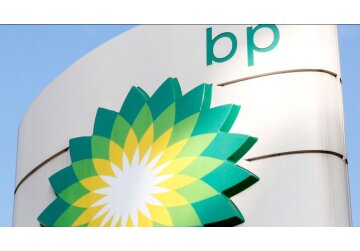
BP to miss key climate target as annual profits hit record £23bn
The company says it is investing heavily in the future as critics pile in, accusing the sector of profiting on the misery of wider society.
BP has revealed it is to miss a key climate goal while announcing record annual profits.
The London-based firm said its main earnings measure, underlying replacement cost profit, came in at $27.7bn (£23bn) for 2022.
That is more than double the previous year's sum despite weaker oil and gas costs knocking its performance in the final quarter.
The earnings figures further inflamed the debate on whether big oil and gas firms should be handing more back through windfall taxes amid the energy-driven cost of living crisis.
It comes just days after Shell reported profits of £32.2bn.
Both firms suffered big losses during 2020 as the COVID pandemic hammered energy costs due to a lack of demand.
But the recovery in oil and gas prices since - latterly guided by Russia's war in Ukraine which squeezed supplies, particularly across Europe - has prompted national governments including the UK to impose windfall taxes on the sector.
Natural gas costs, while well down on their peaks, remain high compared to pre-pandemic levels.
BP admitted, alongside the figures, that it now expects carbon emissions from its oil and gas production to fall by between 20-30% by 2030 when compared to 2019 levels.
Its previous target had been a 35-40% drop in emissions.
It blamed the move on anticipated higher levels of output to meet global needs - a shift that was slammed by climate campaigners including Greenpeace which called for government intervention.
Chief executive Bernard Looney revealed £6.6bn of additional investment in energy transition projects and a further £6.6bn for oil and gas to meet energy security demands while defending its performance.
Domestic critics, including unions, climate groups and Labour, want additional tax clawbacks.
They argue energy firms' earnings have been gained at the expense of wider society because wholesale prices have caused decades-high inflation and left households and businesses nursing record bills on many fronts.
Chancellor Jeremy Hunt's autumn statement last November had raised the energy profits levy on UK extraction activities to 35% from 25%, as the government sought to recover more on the back of its continuing energy bill support.
It left the effective tax rate at 75% because of the 40% corporation tax charge already applied, though some investment relief is granted under the levy.
Despite that hit, energy company dividends have continued to rise on the wider, more substantial earnings. BP raised its award by 10% helping its share price rise by 4%.
That is all welcome news for pension values as the vast majority of funds are obliged to hold top tier stocks.
Shareholders have been further rewarded through share buy-backs. BP said it would repurchase $2.75bn of shares over the next three months after buying $11.7bn in 2022.
Shell said last week that it expected to pay around £100m under the levy's rules for its UK offshore activities last year - taking its global windfall tax bill to almost £2bn.
Its total global tax contribution was £10.8bn.
news.sky.com







